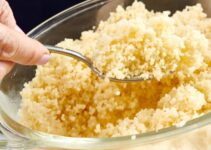What are sunflower seeds?
Sunflower seeds are known for numerous health benefits. These seeds contain fats, vitamins, minerals, and other healthy nutrients. Common people generally take it for a healthy heart, skin health, strengthening of bones, and diabetes. Sunflower seeds are the fruits of the sunflower plant, which are present at the head. An average sunflower head contains about 1500-2000 seeds. It is often eaten after roasted, which increases its flavour. The seeds have a suitable amount of oil. Therefore, it is one of the main ingredients of polyunsaturated fat.
Sunflower description

Sunflower is a beautiful plant with bright yellow petals, encompassing numerous seeds at the centre of the flower. The beauty of the flower and the plant attracts many people towards its field. Its roots are rich in minerals and vitamins and are known for many health benefits. The seeds are tasty and crunchy in flavour.
Nutritional facts about sunflower seeds
It is full of nutrients. One-fourth cup of it contains the following bio-substances.
- Calories: 163
- Fat: 14gm
- Protein: 5.5gm
- Carbs: 6.5gm
- Fiber: 3gm
- It also contains Vitamin E, B6, niacin, folate, pantothenic acid, iron, magnesium, zinc, copper, manganese, and selenium.
- It also contains antioxidants like phenolic acids and flavonoids.
Wonder benefits of sunflower seeds
- Prevents chronic diseases: These seeds contain an adequate amount of vitamin E, phenolic acid, flavonoids, and selenium, which combat free radical damage and ensure a healthy body.
- Lowers blood pressure: There are some phytochemical substances, including magnesium and linoleic acid, in these seeds, which ensure smooth blood flow in the blood vessels, resulting in a lowering of blood pressure and reducing the amount of cholesterol.
- Treat diabetes: Regular eating of sunflower seeds help to control blood sugar level. It contains vitamin K and chlorogenic acid, which stir the pancreas to secrete insulin.
- Anti-inflammatory: The seeds have an adequate amount of vitamin E, which is an excellent antioxidant and has shown a beneficial role in the case of osteoarthritis and rheumatoid arthritis.
- Colon Cancer: The presence of antioxidants, like vitamin K, helps to reduce the risk of colon cancer.
- Cardio-vascular diseases: Cholesterol particles getting oxidised start adhering to the arteries and prevent blood flow in the arterial regions, causing a heart attack, blocked streets, and strokes. However, the presence of vitamin E and polyester prevents cholesterol oxidising, thus suitable for heart health. It also lowers the level of triglycerides and bad LDL cholesterol.
- Thyroid health: Sunflower seeds contain selenium, an effective mineral for the better health of the thyroid gland.
- Muscle cramp: The presence of magnesium in the seeds ensures the strengthening of bones and bone calcification, while pantothenic acid reduces the frequency of muscle cramps.
- Skin Beauty: The antioxidant E helps to make the skin youthful, shining, and hydrated. It also helps to maintain the elasticity of the skin.
Sunflower seed uses
- Aid digestion
- Prevent coughing
- Skin hydration
- Improves lung health
Sunflower side effects
- High blood pressure due to a high amount of sodium.
- Kidney problems
- Inflammation, including heart disease, due to Omega-6
- For high-heat cooking, this oil shouldn’t be used.




